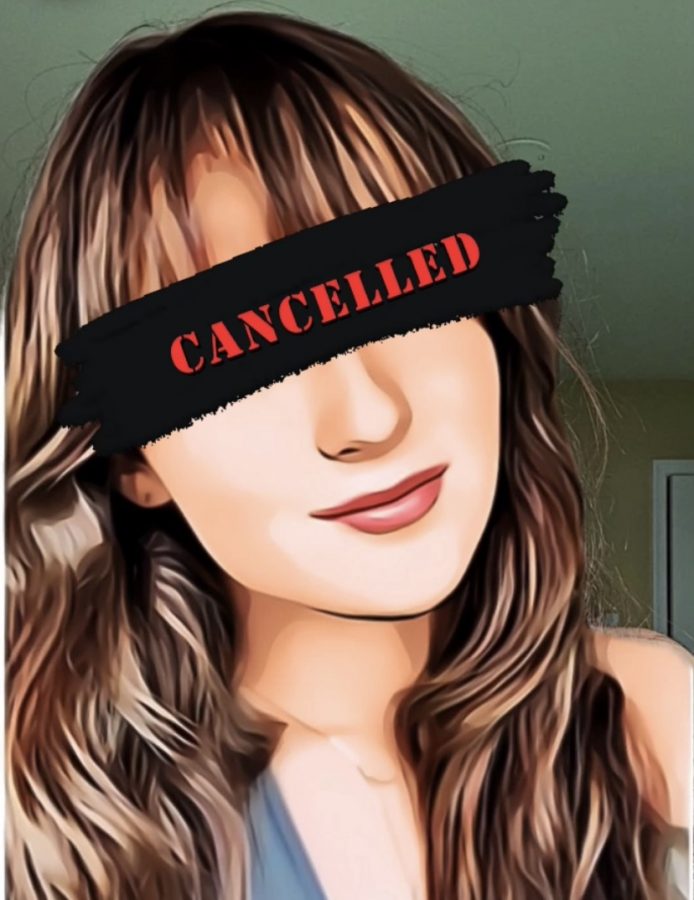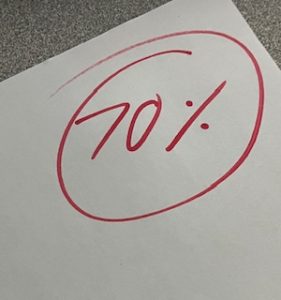Cancel “Cancel Culture”
December 5, 2020
Cancel culture is a trend on social media that spreads hate and encourages cyberbullying. It is caused by fans putting influencers under a microscope and calling them out for their mistakes. “Canceling” is a way to publicly reject someone on social media for saying something that is not considered politically correct in today’s climate.
The purpose of cancelling someone is to harm their reputation or end their career. Celebrities, influencers and brands take the brunt of public ostracization on social media, oftentimes through the use of harmful hashtags such as #cancelled or #isoverparty. An example of this is when Ellen DeGeneres got called out for a broken work environment on her TV show.
Social outcasting was prevalent long before it was known as Cancel culture. In past societies, people were cast out if they didn’t conform to specific social standards. People today face the same reality even when not being cancelled.
You can’t just say and do what you want and expect your reputation not to get damaged. However, there is a difference between canceling someone and talking poorly about them. When you cancel someone, it has long-term effects on all aspects of the person’s life, while bad-mouthing someone may only diminish his or her reputation within a self-contained group of people.
People who get involved in the toxic scheme of cancelling often don’t realize they are falling victim to a mob mentality. Perpetrators are much more likely to cancel someone when a large group of seemingly like-minded people are all canceling the same person.
The “cancellors” also have a screen to hide behind and few personal repercussions to worry about. It is unlikely that a lot of people would behave the same way if they didn’t have a virtual safety net.
The act of banding together to cancel someone, although an individual act, has quick social rewards according to Psychology Today. The instant gratification humans receive by fixing a distant problem contributes to the appeal of canceling someone.
When influencers say something that is considered politically incorrect, many people will cancel them as a form of activism when it could be construed as cyberbullying. The “cancellors” may get their point across, but at what cost? Influencers have such a large fan base that they are virtually impossible to actually cancel, but the long-term hate still causes their well being to be diminished.
Along with influencers’ livelihoods being threatened, the toxicity of getting cancelled is so severe that it almost limits influencers’ free speech, in a sense. They could be forced to stay silent on issues they believe in because they are too afraid of receiving backlash. Although influencers do face the possibility of being cancelled, no one is physically or legally stopping influencers from speaking their mind.
Influencer and Tik Tok dancer Charli D’Amelio has recently faced a wave of backlash after making a comment about her follower count during a video on her family’s Youtube channel.
D’Amelio said “Imagine if I hit 100 million a year after hitting 1 million,” D’Amelio said. Fans took the quote out of context and started bashing her for being ungrateful and rude. She was at 95 million when the comment was made and quickly lost about a million followers.
After being cancelled, D’Amelio went on live crying. She explained that she made the comment because she was excited to hit the milestone and that she had planned to give out donations on the day she hit 100 million.
D’Amelio went on to talk about how people were sending her death threats. Even though she earned her followers back quickly, the immense hate she received can be damaging.
The harm that comes with being cancelled isn’t limited to influencers and celebrities. In July, Boeing’s senior vice president of communications, Niel Golightly, stepped down from his position over backlash he received for an article he wrote three decades ago on women in military service. He stated that he disagrees with his old views and has grown from the incident but was still forced out of his job for the sake of the company’s image, despite the article being written in 1987.
Another instance where cancel culture did more harm than good was in 2019 when influencer Jordan Woods got accused of cheating with Khloe Kardashian’s then boyfriend Tristan Thompson. She received a mass amount of hate and spoke in an interview with Cosmopolitan about how harmful getting cancelled was for her health.
“These are real people, with real lives,” Woods said. “People are so detached that they don’t feel empathy, they don’t feel bad, they don’t realise that the one message that you sent laughing at someone could be the message that pushes that person off the ledge.
Even though cancel culture may be able to correct potentially harmful mistakes, is the degradation of a humans’ well-being worth the opportunity to force one’s point of view? I agree that notifying influencers of their wrongdoing or potential mistakes is necessary, but publicly bashing them is not. It supports cyberbullying while inaccurately displaying it as activism.
Cancel culture is still prevalent in our society and will most likely continue to thrive because of the mob mentality and instant gratification that attracts its followers. However, that doesn’t mean that we can’t spread awareness of the dangers of cancel culture and cyberbullying.










